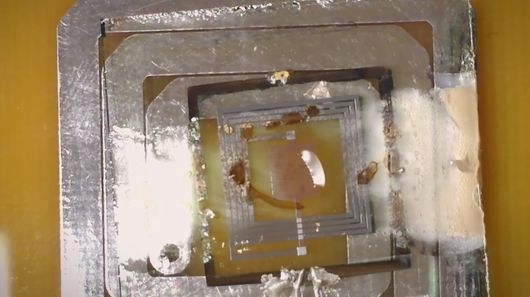Expanding on previous research into electronic devices that dissolve in water once they have reached the end of their useful life, researchers at the University of Illinois have developed a new type of “transient” electronic device that self-destructs in response to heat exposure. The work is aimed at making it easy for materials from devices that usually end up in landfill to be recycled or dissolved completely.

The technology involves first printing magnesium circuits on thin, flexible materials. Microscopic droplets of a weak acid are then trapped in wax, which is coated onto the devices. When exposed to heat, the wax melts and releases the acid, which completely dissolves the device. The researchers were also able to create devices that can be remotely triggered to self-destruct by embedding a radio-frequency receiver and inductive heating coil. In response to a radio signal, the coil heats up and melts the wax, leading to the destruction of the device.
“We have demonstrated electronics that are there when you need them and gone when you don’t need them anymore,” says White. “This is a way of creating sustainability in the materials that are used in modern-day electronics. This was our first attempt to use an environmental stimulus to trigger destruction.”
For more detail: Things heat up for self-destructing electronic devices
